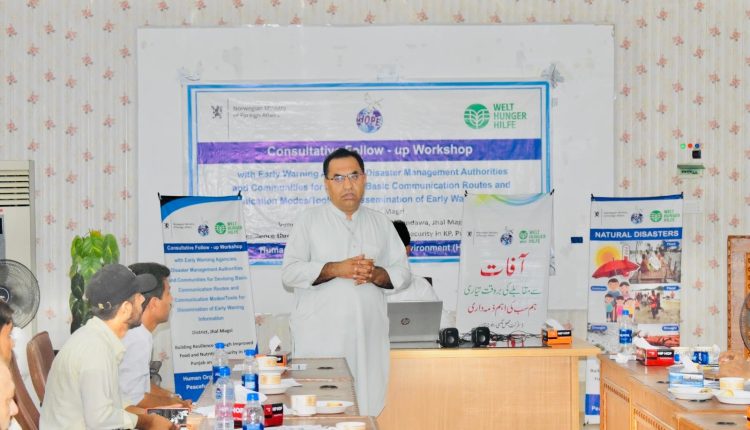Close coordination and combined efforts need to reduce losses during disasters. Hafeez Khosa
GoB along with non-government organizations aims to facilitate people. Deputy Director Social Welfare
Quetta: Natural disasters are very dangerous for human-being and farmers. Timely preparation and awareness and preparedness is compulsory to reduce financial and crops losses. Government of Balochistan is working to tackle issues, non-government organizations are playing their part very well to educate the farmers and local people in communities. It is our duty to support such initiatives to save our future and livelihood. Said Mr. Hafeez Ullah Khosa, Deputy Director Social Welfare Department District Jhal Magsi while addressing participants of Follow-up Consultative Workshop on Disaster Preparedness, arranged by the Human Organization for Peaceful Environment (HOPE), in collaboration with Welthungerhilfe (WHH), at Jhal Magsi. During the workshop the participants discussed various problems and presented the key outcomes and recommendations of the initial workshop held on May 15, 2025.
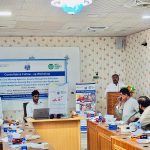

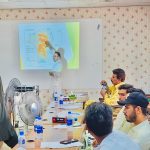
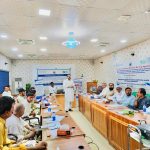

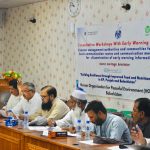


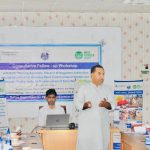
The workshop aimed to strengthen district-level disaster preparedness, enhance early warning mechanisms, promote institutional coordination, and ensure the inclusion of smallholder farmers in emergency response planning. Special emphasis was placed on identifying practical tools and effective communication channels for timely dissemination of information during disasters.
The event was formally inaugurated by the Deputy Director, Social Welfare Department, who commended HOPE’s proactive and community-centered approach to disaster risk reduction. He acknowledged the relevance of such initiatives in building local resilience and extended his best wishes for the organization’s continued efforts in the region.
During the session, facilitators presented a comprehensive report, outlining the key findings, identified gaps, and strategic actions proposed during the initial consultation. The presentation provided a roadmap for enhancing coordination among stakeholders and integrating community-based solutions into the district’s disaster management framework.
In his closing remarks, the Project Manager of HOPE expressed gratitude to all participants, government representatives, and partner organizations for their valuable contributions. He reaffirmed HOPE’s commitment to advancing localized, inclusive, and sustainable approaches to disaster preparedness and resilience building.

